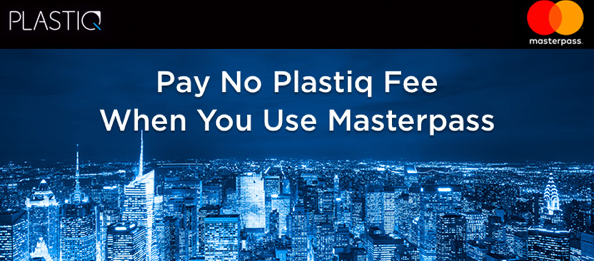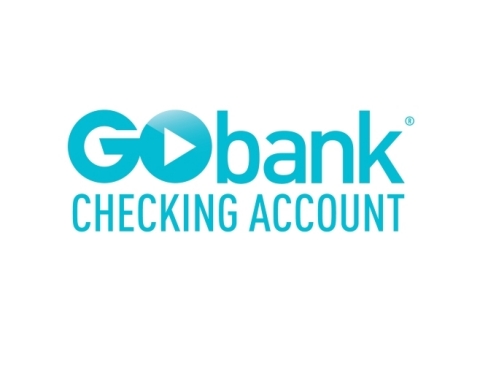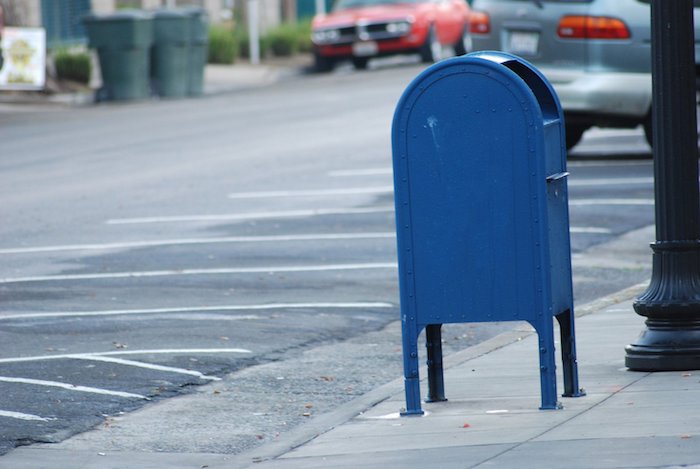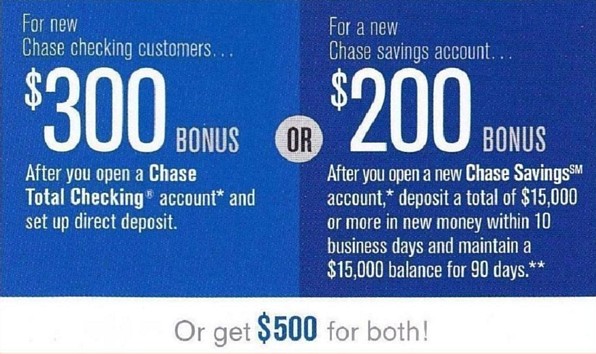We’re back with a Brandon asks post today on a topic that I’m sure many of you can relate to. Today’s Brandon Asks question comes from reader Phil, who writes:
Hi, I’m new to points and miles, and I wanted help earning miles by paying bills that don’t take credit cards. The $250 Plastiq Masterpass deal is a hassle, doesn’t always work, and ends soon.
I’m not talking about anything out of the ordinary, just my largest monthly bills which you could save money on through energy comparison; mortgage, car payments, water company, the light bill, college tuition for the kids, my wife’s student loan, property taxes, Cell Phone, etc.
Help! There’s tons of miles going to waste!
—
Sam: Thanks for the shot at helping you here Phil. Everyone certainly has some of these bills, and the allure of paying them to earn miles has been the source of click-bait for years and years now. It is important that first and foremost you are able to keep on track of your bill payments in order to make sure you can actually afford them. If you are struggling to pay off electricity bills then it might be wise to look at alternative Electricity Plans that might save you some money. Alternatively, if you have some important upcoming expenses like bills and you’re not sure where you’re going to get the money from to pay for it all, you could look at getting a quick loan – pikalaina täältä.
I was initially excited about reading your question because I think it is an area that a lot of people identify as a potential source of points/miles. That said, I want to temper your expectations here. We probably won’t be giving you easy answers, and won’t likely tell you things that you’re prepared to waste spend your free time doing. With this being said, as well as using a credit card to pay off bills, etc, there are also other ways to do this. It may be worth checking out sites like GoFundMe for more information.
But that said I would like to talk a little about Plastiq. Plastiq’s a bit two-faced. Ordinarily, it is an almost certain waste of money, time and energy. Spending 2.5% to earn points/miles is not a way to generate profit for almost everyone.
However, maybe in response to their standard business model being so useless, Plastiq has decided to own the summer and partner with Mastercard and Masterpass for free payments of up to $250.19. Much to the chagrin of Mortgage processors, car loan holders and anyone who doesn’t enjoy receiving dozens of checks when one will normally do, Plastiq’s offer lasts for 1 more month, and could be a quick way to earn points/miles while passing your bills.
How about you Robert, what’s your take on Plastiq/MP promo? Worthwhile, at this point or skip it and spend your time elsewhere?

Robert: I think the Plastiq/Masterpass promo is the deal of the year.
One of my Hopes & Fears for 2018 was a low fee way to pay real bills with debit cards. With this promo we have a no fee way which is fantastic. Paired with this have been some concurrent Mastercard GC promotions that make this even more compelling.
I often mention to Sam that I don’t pay attention to sales. It seems like every day there’s a mistake fare, an award sale, or an extreme hotel deal. Yet when I look into them they don’t suit my travel needs, I can’t find the deal at all, and I just end up wasting time considering if – I dunno – I want to go to Paris or Beaver Creek in October. Always in October.
I don’t have a slot or need for a vacation in October. Why am I even looking?
I mention that as a backdrop for why I think the Plastiq deal is worth everyone paying attention to. It’s because it opens up a liquidation channel. And liquidation is everything in this game.
Everyone should be able to use this promo to boost their points, miles or cashback. You choose, and it can be done entirely online.
That’s pretty amazing. If readers find similar deals elsewhere, please let the authors of this blog know about them.
Phil mentions the Plastiq promo is a hassle. It is tedious, but I think it’s a matter of “no pain, no gain”. I’ve seen (and done) much more onerous things in the pursuit of points & miles.
We’re in the home stretch on the Plastiq/Masterpass deal and I’m encourage users to take a closer look at it if they haven’t already. It really is a tremendous deal.
Phil is right: This promo is going to expire. So, what’s next for those wanting to earn points while paying real bills?
Sam: Great, concise write-up about the Masterpass promo. I wrote a post about it, but thought it was a bit too direct, and shelved it. Instead I’ve been tweeting some decent strategies about how to maximize it for use with minimum spend and/or just earning points/miles. (Be sure to follow milenomics on Twitter)
It certainly is work. I’m so tired of looking at plastiq.com, Masterpass, and typing in passwords. I won’t say I’ll be happy when it is dead–but I could use a mental break from it for a while. If Visa Checkout is reading this and wants to partner with Plastiq next, can you do November-Feb? I think a month off is good for all of us.
So with that said I’m going to list a few bill payment options you have, and then we can discuss maybe a little more why paying bills is a red herring of sorts.
Bill Payment Options (By Type)
Payment options really fall into three categories:
- Services that allow you to pay bills online
- Services that allow you to pay bills online after in person loads
- Services that only allow you to pay in person
As you move down that list your time spent on this increases, but the cost to pay the bills decreases. This is sadly the state of the game we play now, the “why we can’t have nice things,” that gets tossed around a bit.
Services that fall into category 1 are things like Plastiq, and the now-dead Tio.com (RIP mi Tio!). These companies either offer insane teaser rates to gain traction and burn VC money, or they charge a percentage on payments that makes them unattractive. Plastiq is an interesting case because they transitioned from teaser to real rates, and really shouldn’t need to burn money; they’ve survived where others haven’t.
But, with Mastercard picking up the tab on this promo Plastiq is back in the Burn someone else’s money mode. Once that’s over and Plastiq is charging 2.5% it will no longer a viable way to earn miles. We did a Q&A with Plastiq where I outlined a few legitimate uses of Plastiq.com. None of them were for day-to-day bills. I think we were pretty honest in asking why anyone would use their service when lower cost options exist. I’m still waiting for a good answer to that one…

That brings me to something like option #2 on the list. Two such options for this are Serve/Bluebird and GoBank. First, you sign up for a bank account/prepaid card using your SSN. That means this is not an ‘anonymous payment’ and is in fact a Bank-to-Bank payment, similar to a bill pay you would do from your checking account. Funding with a Credit card is not allowed, so you’ll need to find a store that allows loading with prepaid cards. This is legwork, and takes time, energy, fees (to buy the cards) and gas. The main risks here are shutdown of the prepaid account more so than shutdown of your targeted bill pay account.
Moving to #3, paying bills in person at WM for example. Here you have all the same negatives of getting funds into the system as Option #2–you cannot just pay CC->Mortgage. You’ve go to go with an in-between step of something like VGC/MCGC. And you need a friendly payment center at a WM/Grocery store. This is the riskiest of all three options, as you’re working an ‘anonymous’ payment method. Shutdown stories abound regarding payment of Credit Card accounts from WM BP.
Did I miss anything in your opinion Robert? Are you working any of these?
Robert: Terrific summary of the space, Sam. I appreciate the way you take a next-level look at who’s paying for what, and how money flows. It’s useful to think about because it correlates with sustainability and shutdown risk.
It’s fascinating to me how with each of these options there’s an approach that feels more above board and therefore, in our minds, less prone to shutdown. But that’s not always the way things play out.
For example, when Bluebird was around some people really felt better paying their mortgage than paying their credit card bills. With this mindset, our ability to earn credit cards had a scale limit. We could rack up as much spend as the we had real bills to pay.
When Bluebird started shutting people down en masse, everyone was shutdown. It didn’t matter whether you were paying real bills or the very credit card you bought the Vanilla Reloads with. So by trying to play it safe you really limited the NPV of the deal by limiting your scale to real bills.
This pattern repeated itself with TIO.com. You could pay real bills, but you could also pay your credit card. So why bother paying your real bills?
The takeaway from these dead deals should be to learn from the patterns of how money flows. If we deconstruct the pieces that made up a deal we can find new deals by fusing together elements in new ways. Sometimes all it takes is one tiny change in a product to open up a new, substantially better opportunity. That’s what happened with this Plastic/Masterpass promo: A small change made it suddenly useful.
Another thing to consider is how things which seem limited in scale sometimes aren’t. For example, you hear about some some Amex Offer that’s worth $5 and think “why would I waste my time with that?”. Meanwhile some guy has 99 AUs per card on 10 cards and has automated it to the point there’s some serious money to be had (until things go south as we’ve seen recently).
One payment service Sam didn’t mention explicitly that was the now-defunct Evolve Money. They were great because they let you pay real bills with a VGC fee-free, and you could fund 529 plans. The kids’ futures never looked so bright!
I poke around from time to time seeing if Google searches for things like “pay bills online debit” turn up anything. Depending on how fees shake change (sometimes even by payee) online versions of Moneygram and Western Union could become liqudation channels at some point.
I’m hopeful Plastiq will, as a result of this promo, see that there’s some business to be had accepting VGCs/MCGCs for real bills with fees lower than the 2.5% they charge for credit cards. Their costs are lower so if they put there mind to it I think they could make something work.
What do you think, Sam? Is it just a waste of time to be thinking about paying real bills? Or is it only worthwhile if you find a perpetual point machine?
Sam: I realize readers like Phil are probably coming here for easy to consume, actionable ideas–and we’re way off into the weeds from there. But I think the discussion we’re having is really the type of talk that I’d have with Phil if he were sitting here right now. Is paying bills worth it or a complete waste of time? I vote complete waste of time. I’ll get into why, but in order to do so I really need to peel back the layers a bit. Keeping with the 1, 2, 3 above I’ll step into each one of those options here:
- Plastiq.com is going to be the exception right now. You could use it to hit a minimum spending threshold, buy MCGC at an office supply deal and pay nothing to liquidate them, as you mention above Robert. This is a time sensitive deal–and one that will disappear at the stroke of midnight, Sept 30th. Like a Coach turning back into a pumpkin Oct 1 will be the day that Plastiq goes back to only being useful for cash strapped people, Business owners (or AP clerks) siphoning cash from a business, or draining small dollar gift cards/hitting monthly minimums on rewards checking accounts. That’s just a fact–they’ve chosen to not allow paying banks and CC’s, and don’t discount Debit card payments. They’re trying to go it without us, a noble attempt, and one that I feel will ultimately end with failure, or a buyout from Paypal.
- We’re getting into the meat of all of this here. The reason that paying bills makes no sense is that there are equally simple ways to drain these accounts that don’t involve paying bills. You can cash out to a bank account, buy Money Orders or pay credit cards with the services I listed above. Are those riskier than paying a ‘real’ bill? I can’t answer that for Phil, or Robert, or anyone other than myself for certain–but with money being fungible it doesn’t really matter except to maybe make you feel better about things. If you pay your mortgage with a check and cash out your GoBank for an identical amount by paying your Credit card is there a net difference to you? To your mortgage company? To gobank?
- These Anonymous payments are an absolute nightmare for real bills. Imagine paying all your real bills for 1- 2 years and then trying to apply for a mortgage. Removing bill payments from the idea of earning points/miles means you can keep clean books, that are easy to audit. I’ve long advocated fire-walling your real life spending from your funny business-and today’s Brandon Asks is just another reminder to do so.
Robert: I’ll sum it up from my perspective with the following take-aways:
- Man has long saught to pay his mortgage with a credit card. It’s not possible directly, but it’s oftencirucitously possible. How exhausting those machinations are, and whether it’s exclusvely possible towards real bills varies by season.
- If you like solving puzzles join the portion of the community unearthing things. It’s a fun game. Otherwise, direct your energies elsewhere and pick the low-hanging fruit.
- This Plastiq/Masterpass promo is terrific towards min spend on Mastercard credit cards. Especially those with high minimum spend requirements like the seemingly ever-available Virgin Atlantic card.
Sam: I think Robert’s onto something with the puzzle angle. Along those lines I see the idea of paying your bills to earn points/miles not really as an opportunity–but as a barrier to larger things. The skills you’ll learn in order to pay your bills are the stepping stones to massive spending that is only limited by your imagination, bankroll and risk tolerance (Beware the float rule!).
Robert’s advice to take ideas and fuse them together is sound–but you won’t get started in learning the pieces of the puzzle if you keep thinking of this game as a linear one. More bills=more points/miles is linear. I always tend to believe that ‘doing it for the points’ leads to overspending, which means you’re actually paying Dollars to earn pennies. For that reason, as well as all of the above let’s remove bills from the calculus. Doing so leaves us with the absolute Truth:
More points/miles = More points/miles.
Thanks to our ‘Brandon’ this week, reader Phil. What advice would you offer Phil? And what do you think of the advice above? Leave a comment below so we can keep the conversation going.




Just to be explicit — bills such as cell phone and some utility bills can be paid online with your credit card. Some of mine only take Visa for instance, so you’ll just have to see. If there’s a fee, see if it is a flat fee or a percentage. My gas bill charges a flat fee — less than $5 but it might even be $3. It wouldn’t be worth it to do that monthly, so I’ll pay 6-12 months of anticipated bill and let them just keep my money if I’m trying to hit a minimum spend and I need a boost.
My property taxes charge a percentage, so I’d only use a credit card for that if the points exceeded that fee.
For debt expenses that can’t be paid with a credit card (and forgive me, but I’m just going to say it) doing what you can to eliminate those payments entirely is probably the best move overall, if possible.
Thanks Kacie. Good points on there being some bills that can be paid.
However, things like prepaying seem like a good way to earn points, but really prepayment costs you money. You’re paying with pre-inflated dollars and missing the interest on that money ‘for the points.’
I know it doesn’t seem like much–but it negates most of the points actually earned as it is fairly easy now to earn 2+% APR on that money. Or use that money (instead of handing it over early to a utility) as an incubator for more advanced spending tactics. That’s the kind of thinking I hoped to bring to light with this post.
That is true, essentially giving a free loan to your power company, for instance. I don’t do that regularly; I only prepay if I will otherwise have difficulty meeting the sign-up bonus
Thanks for the extra detail for other readers Kacie.